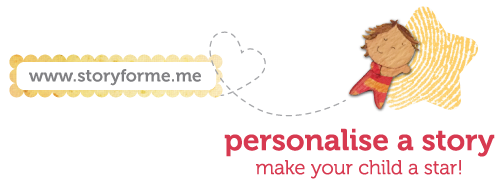
A teacher's take on reading and exploring
One of my favourite authors is AA Milne. He was an English author, best known for his books about Winnie the Pooh and poems. He once wrote ‘How do you spell love? You don’t spell it, you feel it?’ I have always felt like that when I read a story or share a poem or rhyme with a child. It is not about reading a story or poem, it is about the experience of reading it, seeing a child’s mind explode with awe, wonder and questions.
When I worked in Australia, a parent once asked me, ‘’Why should I read to my child if you read with them so much in school?’ My response was, “Do you want your child to be confident? To be emotionally robust? To be able to cope with life? To be able to access language and communicate with their world?’ Then you need to read to your child and talk to them every day.”
For me, reading stories to children and making up stories with them plays a vital role in their education and development. I want the children I work with to be strong communicators and to have relationships with characters in stories. This allows them to explore their minds by using their developing imagination and building confidence and self-esteem, as they realise that stories are limitless.
I have been working with children since 1994 and I can see that children who have been read to and children who read, are more confident than children who don’t have access to as many stories.
As a teacher, I know that there is an expectation to ‘teach’ children how to read and write, in order that they can learn and be prepared to reach the next class, the next milestone. Enabling environments in early year’s settings must be rich in communication and language, role play and lots of speaking and listening experiences. As an early years practitioner I know that reading with children improves my relationship with them and when children feel safe, have secure attachments, then real learning happens because the child is calm and ready to communicate and concentrate.
Reading changes the way a child’s brain functions. It fosters inventiveness and allows children to have happy and social interactions with their family and friends. Language plays a pivotal role in childrens’ lives and determines their future successes. So, I believe that we need to read to and with children every day to ensure they reach their full potential.
How can you do that? Encourage pretend play and make up stories with them.
Visit local bookshops and libraries while sharing books and poetry.
Children are great imitators, so read in front of them. Read anything: a book, an article or even a menu, but do read!
Model rich langauge, read aloud and in different voices to them.
When you talk, encourage their thinking by asking open ended questions. Creating a cosy reading corner in the home which is a place for "our time".
As an aunt to six amazing children, I have read a multitude of stories and rhymes. We have talked about the stories in the car, as we walked to the park, as we cooked dinner and went on road trips. The precious communications I have shared with these children has been endless. Rachael once asked me ‘Aunty is Cinderella real?’ My response was simple ‘Cinderella is a real character.’ Her next question, ‘Aunty what is a character?’ My response was, ‘A character is a person or an animal in a story.’ Before I knew it we were discussing settings, fiction, non-fiction and reading poetry. As we read stories, we relaxed together, talked about feelings and emotions, her language and imagination developed and I could see her connecting more and more with the world she lived in.
The benefits of reading go way beyond the actual act itself. Reading plays a key role in early years education in the way it allows children to make sense of their world. Through reading, children communicate and engage with their world as they use their imagination, real life experiences and role play what they know and what they have read about.
Like Horace Mann once said “A house without books is like a room without windows.” And we as parents, caregivers and educators, should be opening these doors and windows for our children.
Sharon Robertson is an award- winning EYFS Assistant Head at Gems Wellington Primary School.



Comments
Write a comment